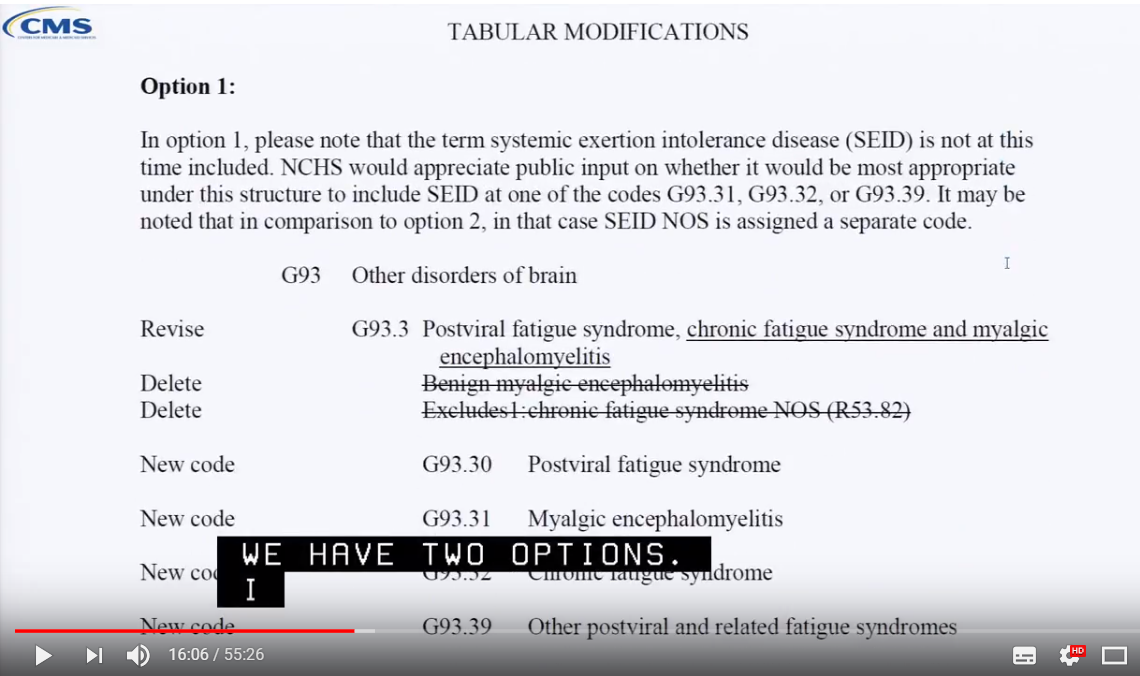That's my reading of it. This may, in fact, be helpful if you believe patients should be stratified by which criteria they fulfil. It also solves the issue of hybrid terms like ME/CFS or CFS/ME, since the coding makes them separate entities at last.
There is another argument (which some people won't like) that at present we have no evidence to convincingly separate any of these diagnoses, which would therefore mean only one code is needed. Ironically, those who most want to separate the three diagnoses appear to want to put them all together into one code. I think that's driven more by a distaste for the label SEID than a logical response to what's being proposed.
The proposal in the first post makes this possible. No?
But I think this is connected to other problems. Doctors will favor certain names (e.g. in Germany it's CFS), and it can't be ascertained that they apply the according diagnostic criteria (SEID - IOM, ME - ICC/CCC, CFS - Oxford, Fukuda?). I think such a coding will increase confusion.
I'm not sure that follows. If a doctor prefers the name CFS, he's likely to use the CFS coding
and use CFS criteria as well. It doesn't make sense that you'd use a criteria that uses terminology you yourself object to.
Likewise, people will probably only use SEID if they're familiar with the IOM report. It's not a term generally used by those who don't agree with the IOM report. People using the NICE guideline (which uses CFS/ME) will probably also use CFS for coding, since they have an implicit preference for that word.
There is a slight possibility that someone will use IOM criteria, say, but use a CFS or ME code, but I think that's less likely. And that's the only set of criteria where I can see people using the criteria but not the suggested name (and mostly because people think we don't need a third name).
People who like London, Ramsay or ICC will invariably want to use ME, and wouldn't know about those criteria without some awareness of the politics behind them.
The criteria used each imply an ideological preference for one term over the others. You can even tell which criteria a person is likely to prefer by their word choice (CFS/ME indicates preference for NICE or a BACME-endorsed BPS concept, ME/CFS usually indicates CCC or a 'middle ground', CFS implies either Oxford or one of the older American criteria, etc).
Those who most vehemently argue that ME =/= CFS also argue that combining the two is detrimental. So having two codes would actually be better to prevent that.
There's an issue with patients who may fulfil tighter criteria being coded under a looser label instead, but that's something that's already happening. It doesn't help to have everyone under one code in the first place. Most UK patients will have a CFS label and this won't change that. But you can't have it both ways--simultaneously arguing to separate ME and CFS, but then arguing to use one code for both.


